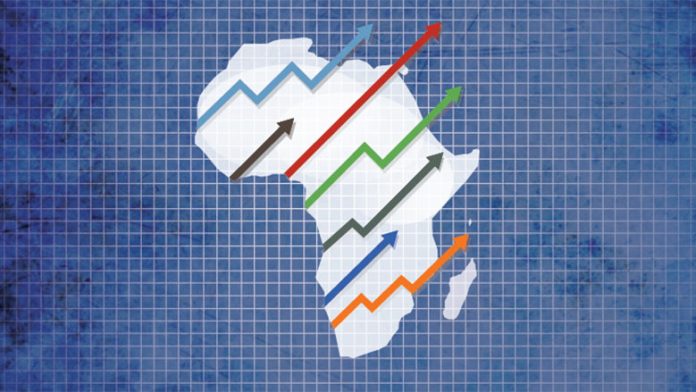The World Bank recently described Nigeria’s economy as sliding backwards. This “discovery” was announced mid-April in its latest Africa Pulse volume. The report analysed macroeconomic and financial trends in 44 sub-Saharan African countries and divided these into three broad categories, based on how their economies are deemed to have grown or stagnated.
According to the international financial institution, Nigeria – along with South Africa and Angola – are amongst 19 countries at the bottom category which “did not show any progress in their economic performance from 1995-2008 to 2015-18”. Instead, “their median economic growth rate decelerated, from 5.4 percent per year in 1995-2008 to 1.2% per year in 2015-2018.”
The indicators used to arrive at these categorizations include; level of income per capita of the countries; structural transformation (defined with sectoral value-added share and sectoral employment share), extent of government’s (local and external) indebtedness, and level of infrastructural development.
But the Bank is not being sincere. These are not causative factors. They are effects of the bosses’ class and its neo-colonial governments implementation of neoliberal policies formulated by the World Bank and the International Monetary Fund (which recently advised the federal government to remove the so-called fuel subsidy).
These policy proposals which often come as conditionalities for loans from international creditors or through reports like this, are instruments of international finance in the service of the capitalist system. They serve the promotion of structural adjustment which enables the rich to get richer as part of the inherent logic of capitalist growth and development.
We must not forget that it was the World Bank’s “Accelerated Development in Sub-Saharan Africa: A Plan for Action” written by Elliot Berg in 1981 that heralded the introduction of structural adjustment programmes (SAPs) across the continent. What was the result? A lost decade for the immense majority of the population. Cuts in the funding of public services, liberalisation of trades in commodities and foreign exchange all led to a few people getting richer while the poor working masses sunk deeper into poverty and misery.
But World Bank and IMF will never explicitly accept that their policies are at the very least, part of the problem. Even when mass outrage at the failures of their policies force them to accept some responsibility in shaping economic policy, their veiled acknowledgement is clothed in excuses about implementation being the problem.
And instead of positing alternative pathways that can actually lead to the betterment of the lot of working-people, they come up with new forms of the same medication that worsened our economic ailment as “remedy”. Thus, SAP was replaced with the “poverty reduction strategy” (PRSP) initiative at the turn of the 21st century.
Just as the IBB government tried to deceive us that SAP was an homegrown economic policy, every government since that of Olusegun Obasanjo with his NEEDS to Muhamadu Buhari with his Economic Recovery & Growth Plan (ERGP) has religiously followed the outlines of PRSP in coming up with their economic programmes whilst lying that their programmes are home-grown.
IMF is being clever by half to suggest that Nigeria’s economy sliding down means it is not working for everybody or that it actually cares for the poor masses, other than for their anger which could upturn the capitalist system IMF represents and defends.
Despite the slowdown of economic growth over the past few years, a few rich capitalists have actually grown richer. According to the High Net Worth Handbook 2019, released in February, “Nigerian is making more millionaires than ever”, with Aliko Dangote emerging as the richest African for the eight year in a row. Meanwhile the number of absolutely poor people in Nigeria has increased to be the highest in the world.
It is equally fraudulent to suggest that improved economic growth translates into the betterment of the lot of working-class people in Nigeria or elsewhere. Between 2000 and 2013, the number of extremely wealthy people in Africa wealthy increased by more than 150% (compared to the 73% globally).
These included 15,900 Nigerians who became dollar millionaires from the economic growth in that period. Meanwhile in roughly the same period (i.e. 2004 to 2010), the proportion of the population living in absolute poverty rose from 54.7% to 60.9%, according to the National Bureau of Statistics.
What we, as working-class people need is thus not economic growth, but system change. Capitalism works for the few capitalists, while it condemns the poor masses to hell on earth. Even to win some reforms to improve our lives a bit under capitalism (such as with upward reviews of the minimum wage), we have to fight – and the bosses resist this as much as they can.
We must thus fight not just for reforms. We must wage ceaseless struggle to overthrow the capitalist system and establish a new economic, political and social order based on solidarity and workers’ democratic control and management of the economy and society as a whole. This is the socialist alternative to the degenerate capitalist system of the World Bank, IMF and the billionaires/millionaires’ class of fat cats.
by Yusuf LAWAL









